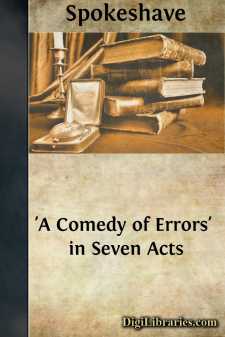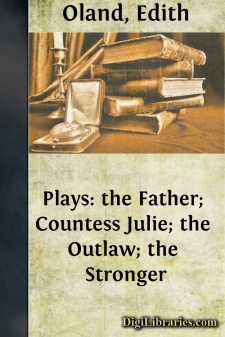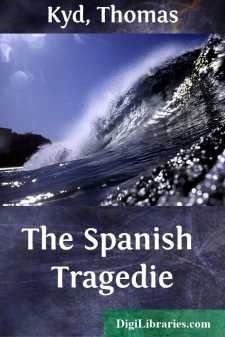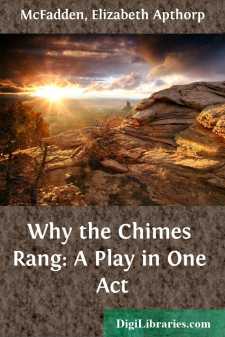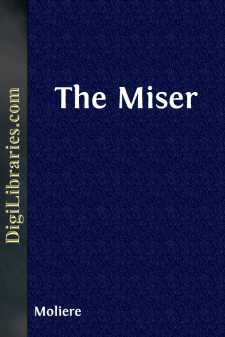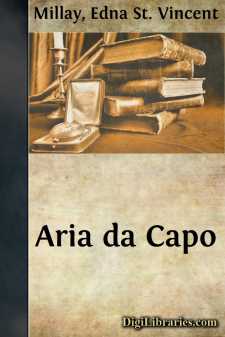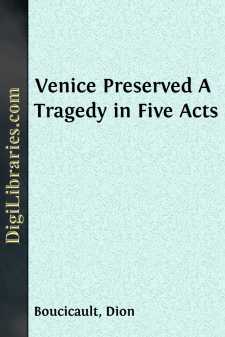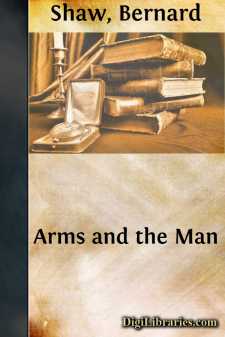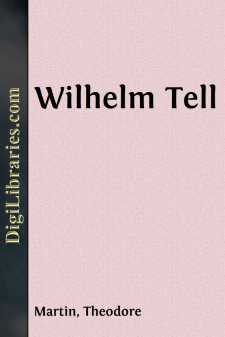Drama
General Books
Sort by:
by:
Spokeshave
Dramatis Personae Caesar . . . . . . . Ruler of the State. Francos . . . . . . Governor General of a Province. Quezox . . . . . . Resident Delegate from the Province. Page. Scene: Throne Room at the Capitol Caesar: Most noble Francos, I greet thee heartily. A function truly noble falls within thy grasp; And thou wilt with it deal as only...
more...
by:
Edith Oland
BIOGRAPHICAL NOTE "I tell you, you must have chaos in you, if you would givebirth to a dancing star."—Nietzsche. In Stockholm, living almost as a recluse, August Strindberg is dreaming life away. The dancing stars, sprung from the chaos of his being, shine with an ever-increasing refulgence from the high-arched dome of dramatic literature, but he no longer adds to their number. The...
more...
by:
Thomas Kyd
ACTVS PRIMVS. Enter the GHOAST OF ANDREA, and with him REUENGE. GHOAST. When this eternall substance of my souleDid liue imprisond in my wanton flesh,Ech in their function seruing others need,I was a courtier in the Spanish court:My name was Don Andrea; my discent,Though not ignoble, yet inferiour farTo gratious fortunes of my tender youth,For there, in prime and pride of all my yeeres,By duteous...
more...
Why the Chimes Rang. The scene is laid in a peasant's hut on the edge of a forest near a cathedral town. It is a dark low-raftered room lit only by the glowing wood fire in the great fireplace in the wall to the right, and by a faint moonlight that steals in through the little window high in the left wall. This window commands a view of the cathedral and of the road leading down into the town. The...
more...
by:
Moliere
ACT I. SCENE I.——VALÈRE, ÉLISE. Val. What, dear Élise! you grow sad after having given me such dear tokens of your love; and I see you sigh in the midst of my joy! Can you regret having made me happy? and do you repent of the engagement which my love has forced from you? Eli. No, Valère, I do not regret what I do for you; I feel carried on by too delightful a power, and I do not even wish that...
more...
COLUMBINE: Pierrot, a macaroon! I cannot live without a macaroon! PIERROT: My only love, You are so intense! . . . Is it Tuesday, Columbine?— I'll kiss you if it's Tuesday. COLUMBINE: It is Wednesday, If you must know . . . . Is this my artichoke, Or yours? PIERROT: Ah, Columbine,—as if it mattered! Wednesday . . . . Will it be Tuesday, then, to-morrow, By any chance? COLUMBINE: To-morrow...
more...
INTRODUCTION I Lady Wilde once told me that when she was a young girl she was stopped in some Dublin street by a great crowd and turned into a shop to escape from it. She stayed there some time and the crowd still passed. She asked the shopman what it was, and he said, 'the funeral of Thomas Davis, a poet.' She had never heard of Davis; but because she thought a country that so honoured a...
more...
by:
Dion Boucicault
EDITORIAL INTRODUCTION. The story of "Venice Preserved" is partly founded upon St. Real's History of the Conspiracy of the Spaniards against the Republic of Venice, in 1618. Voltaire compares the author of this History to Sallust; and pronounces it superior to the English tragedy—an assertion, which, like many others from the same source, was the convenient sentence of an adroit but...
more...
by:
Bernard Shaw
INTRODUCTION To the irreverent—and which of us will claim entire exemption from that comfortable classification?—there is something very amusing in the attitude of the orthodox criticism toward Bernard Shaw. He so obviously disregards all the canons and unities and other things which every well-bred dramatist is bound to respect that his work is really unworthy of serious criticism (orthodox)....
more...
by:
Theodore Martin
SCENE I. A high, rocky shore of the lake of Lucerne opposite Schwytz.The lake makes a bend into the land; a hut stands at a shortdistance from the shore; the fisher boy is rowing about in hisboat. Beyond the lake are seen the green meadows, the hamlets,and arms of Schwytz, lying in the clear sunshine. On the leftare observed the peaks of the Hacken, surrounded with clouds; tothe right, and in the...
more...


